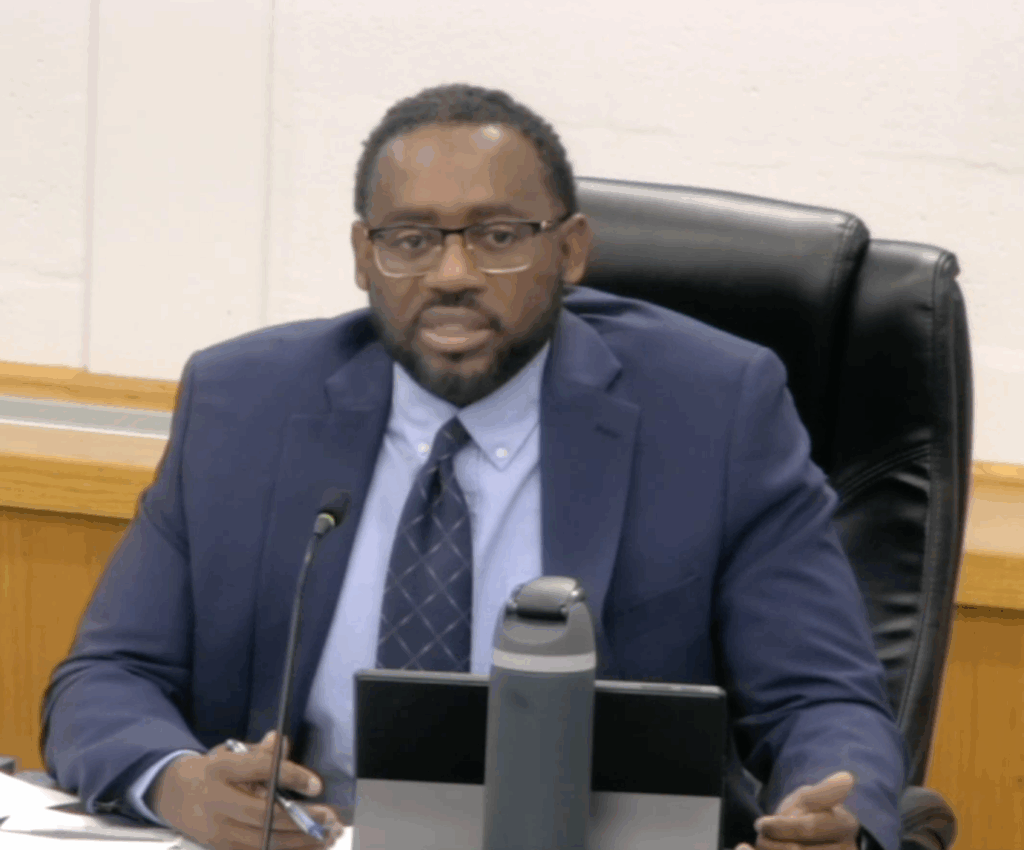There are several stories on this topic throughout the newspaper.
How is the U.S. government partial shutdown affecting people who live in Greenbelt? The News Review invited a large cross-section of Greenbelt residents, via the Greenbelters page on Facebook, to share stories about how people or businesses in town are being directly affected by the shutdown.
At midnight on December 22, several agencies of the federal government temporarily discontinued their functions (shut down) because Congress and the Administration were not able to agree on legislation that would have provided funding for them to remain open. According to the Washington Post, around 420,000 workers from affected agencies are considered essential, such as Transportation Security Administration (TSA) personnel, and are working unpaid, while another 380,000 are not reporting to work, such as almost all employees of NASA and the Departments of Agriculture and Interior.
While the News Review does not have statistics on the number of Greenbelters that are either federal employees or contractors with the federal government who are affected by the shutdown, the number is likely considerable. Because over 5,000 people are members of the Greenbelters Facebook group, the News Review’s call for stories reached a wide audience. On the other hand, because the call only went out to particular participants of a social media site, there will necessarily be categories of people not covered. We have compiled the responses we received and divided them into three separate articles published in this week’s paper. They will look at what people have to say about the shutdown’s economic issues, unexpected consequences, and also will show some of the emotional responses to it. Though the News Review hopes the shutdown ends soon, we invite readers to continue to send stories about the shutdown’s effects. Please send them to editor@greenbeltnewsreview.com
Home and Feeling Terrible.
Employment issues come with a range of emotions from positive and happy at one end of the scale to negative and unhappy at the other end. The current partial government shutdown touches many lives and affects people in different ways. A group of people powerfully affected are government employees and their families. This past week members of the Greenbelters group on Facebook shared some of their responses to the shutdown.
Sharing her negative feelings in the aftermath of the shutdown, Ashley Landreth said, “I’m home as a result of the shutdown and feeling terrible that I’ve canceled my dog walks from my local independent business. Also, not knowing whether we will ultimately be paid is stressful. In addition, I’m responsible (in my government job) for mandatory reporting to other federal agencies at the end of January so once we get back to work, I may need to work overtime to get it all done on time, which I’m not looking forward to.”
Dorothy Didi Ledson Peck added, “In general, the local mood is as dismal as the weather. I went to meet a friend for dinner after work last night [at a local eatery]. From 5:15 to 6:45 we were the only people in the restaurant. The phone wasn’t ringing for carryout. My friend commented that the lack of business ʻmust be due to the shutdown.’” Dan Solomon expressed some of his fears saying, “It is scary. Even though we are of retirement age, we haven’t been able to afford to retire. We partially support our youngest son and, like many people, live paycheck to paycheck. We don’t know how we’ll pay our basic expenses if the shutdown goes on for very long. We have upcoming medical expenses (my wife has a serious medical condition), travel plans to see children and grandchildren, and all the normal daily and monthly bills. He went on to say that, “Part of the anxiety is not only how to make ends meet during the shutdown, but wondering if back pay will get approved. We don’t know if we ever will be able to regain some semblance of financial stability. Being older and finding yourself with the same financial instability as when young and just starting out is upsetting and discouraging. The government shutdown significantly contributes to this.” Bob Rudd said that he understands the need for both parties (Congress and the Administration) standing their respective ground during the shutdown until some type of compromise can be negotiated. He went on to say, “I know many friends and neighbors impacted and know what it was like, many times, when my wife was a government employee. It would be a great help if Congress would pass and the President sign an appropriations bill guaranteeing full back pay for everyone involved including contracted staff after the shutdown is resolved.”
Jay Bellamy said that he was “not too worried though because there has never been a shutdown that I know of where government workers didn’t get reimbursed,” but expressed the source of many people’s concern underlining the problem which he said is “how long the shutdown will last and how long workers will go without any source of income. Promised money later doesn’t help anyone today. Regardless of whom one chooses to blame for a government shutdown, there are so many that are impacted by such a decision. From government employees and their families, to contractors and those dependent on the services provided by various government agencies. I work at the National Archives and I deal every day with folks whose job it is to do professional research at the Archives. This is how they make their living and as long as we are closed, not only are Archive employees going without a paycheck, but those who depend on us are also going unpaid. As for me, I live alone and have no other source of income. I’m fortunately okay for now, but who knows what my financial situation will be weeks from now. Although we most likely will receive back pay when government agencies reopen, money promised for later means nothing today.” Jon Gardner of NASA Goddard Space Flight Center notes, “Most people who work for the government are very dedicated to their jobs, so a big impact of the shutdown is the disappointment people feel because of projects that can’t be completed.”
As an example, he points out that during the 2013 shutdown, NASA’s operations in Antarctica ended up getting cancelled for the whole Antarctic Summer season, since they weren’t able to get started on time. Gardner says that he has organized a session at the meeting of the American Astronomical Society in early January in Seattle. Meeting planners are expecting 200 to 300 astronomers from around the country to attend the session. Gardner says that if the shutdown continues through that date, the session will be cancelled. Even those who are not U.S. government employees feel the emotional effects. For example, Josh Hamlin said that he was “indirectly feeling the stress of many friends” and was glad he didn’t take the federal job he had considered.





